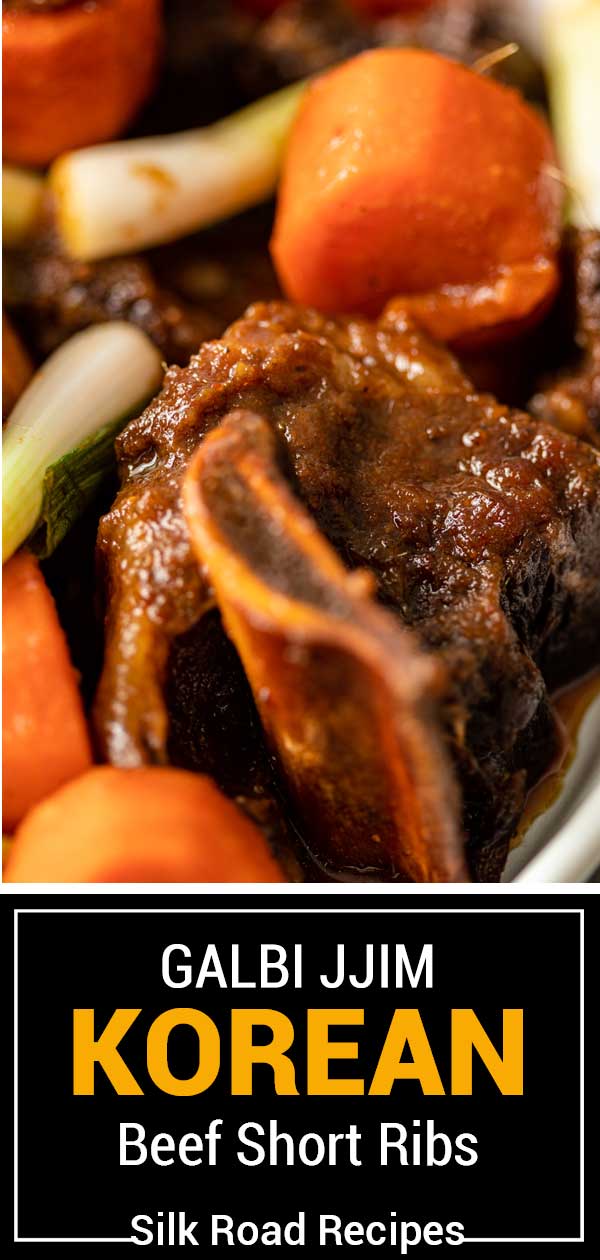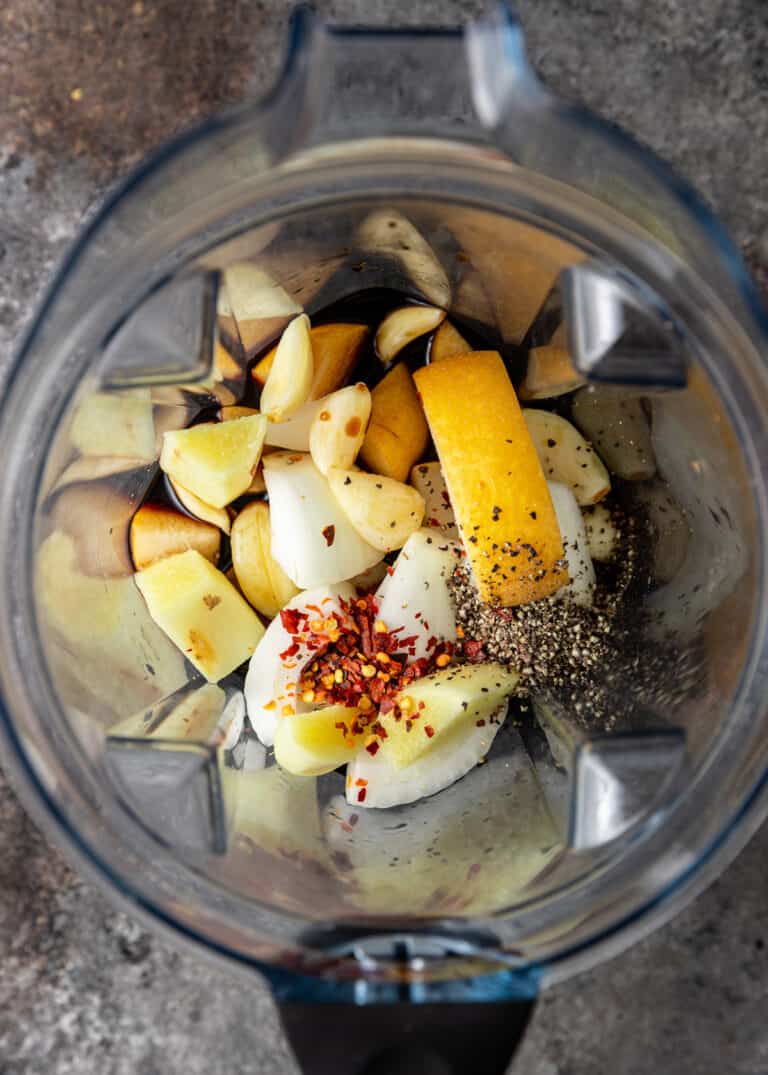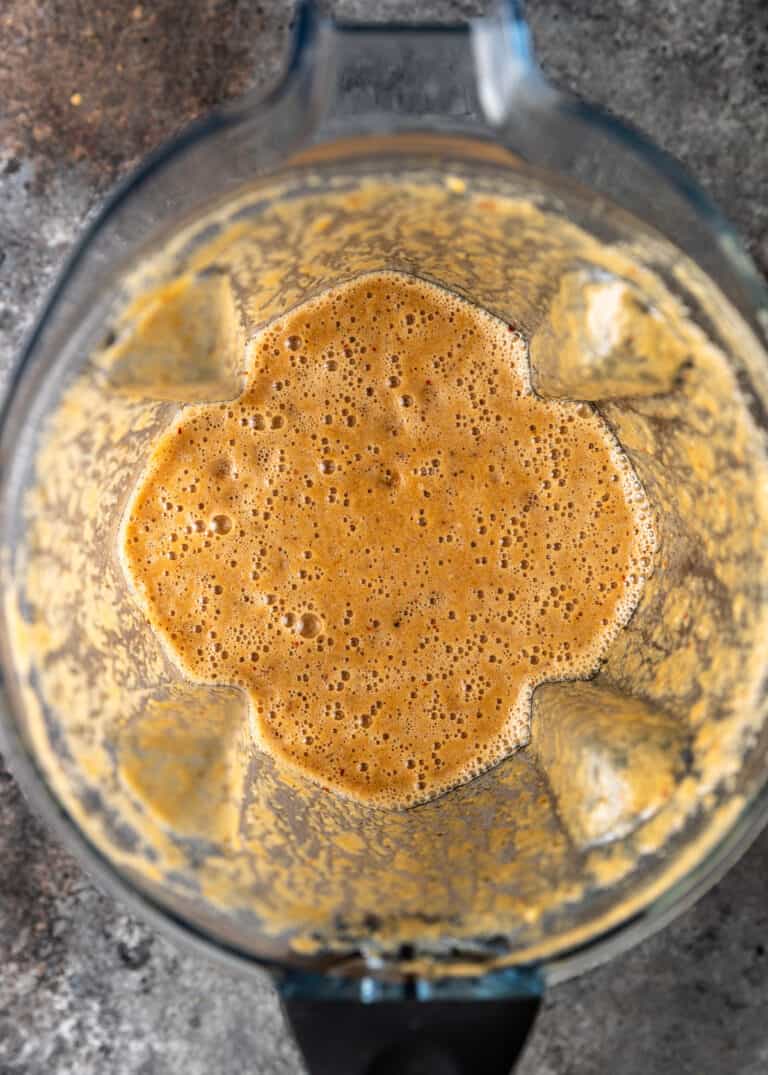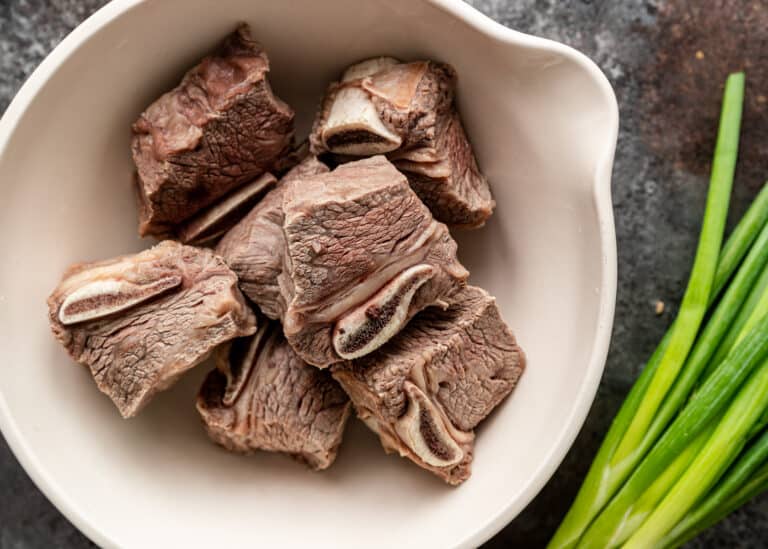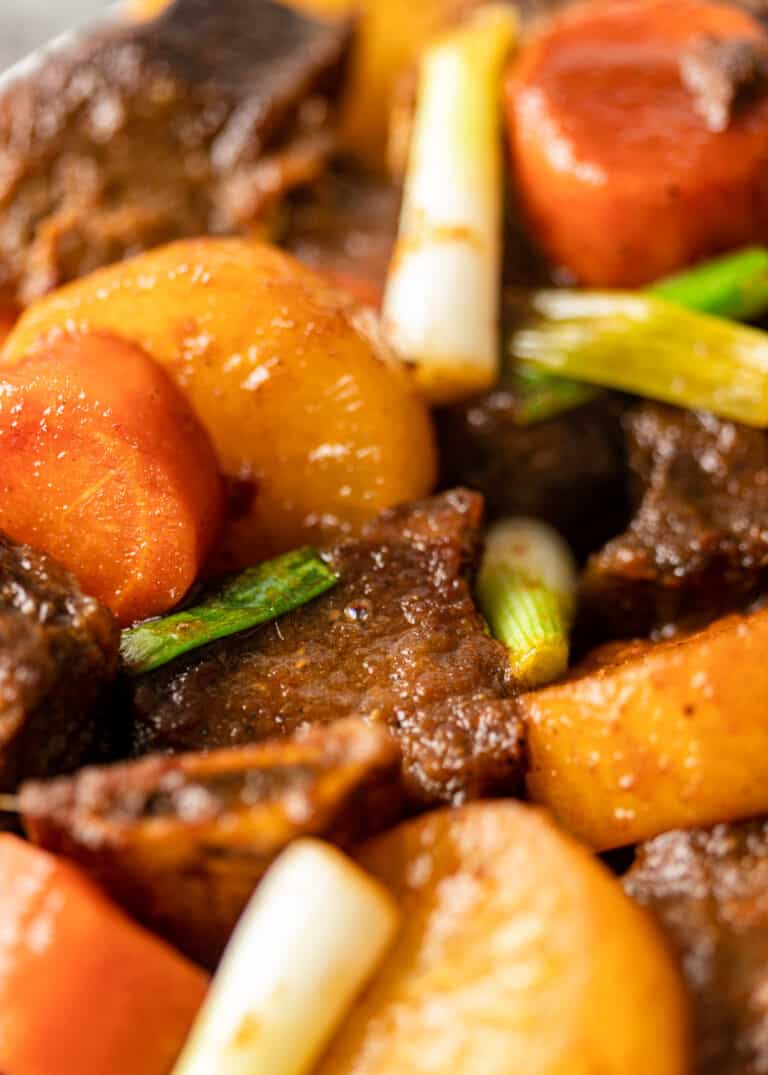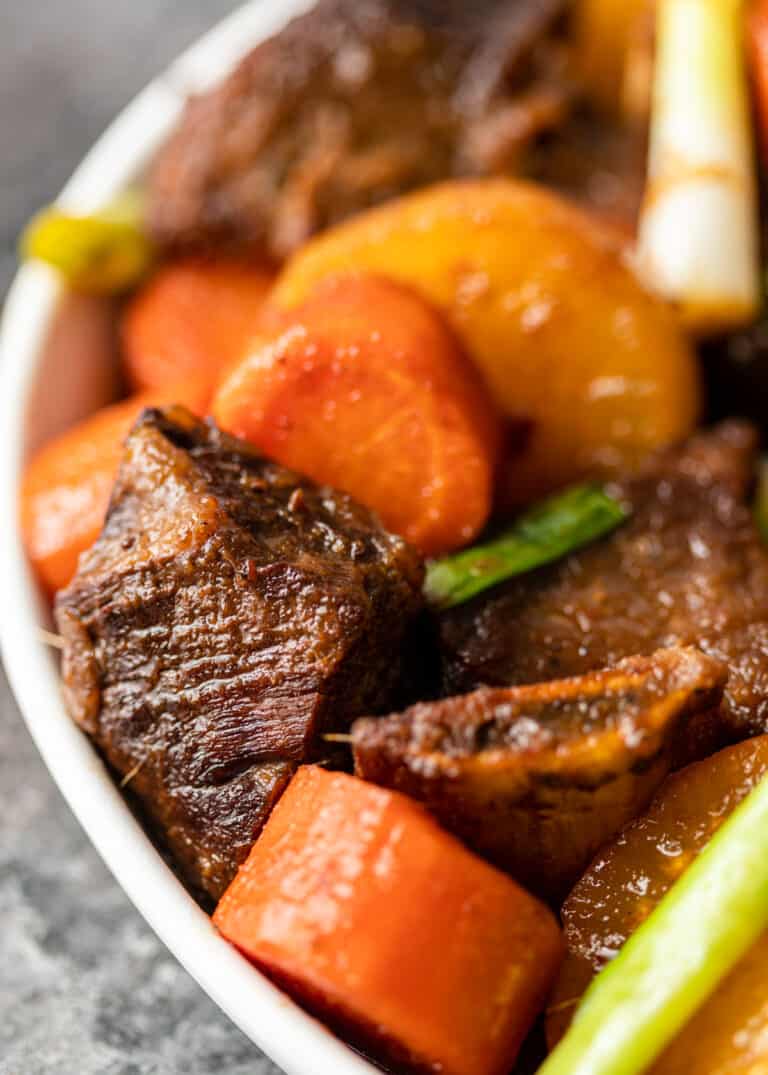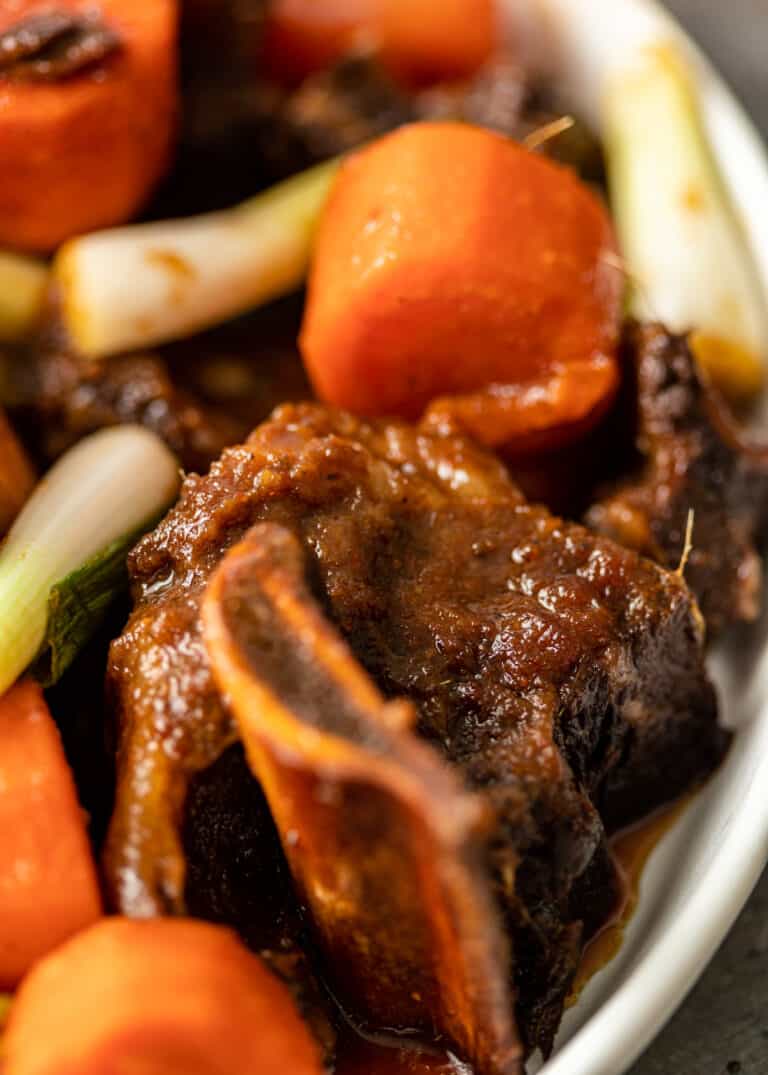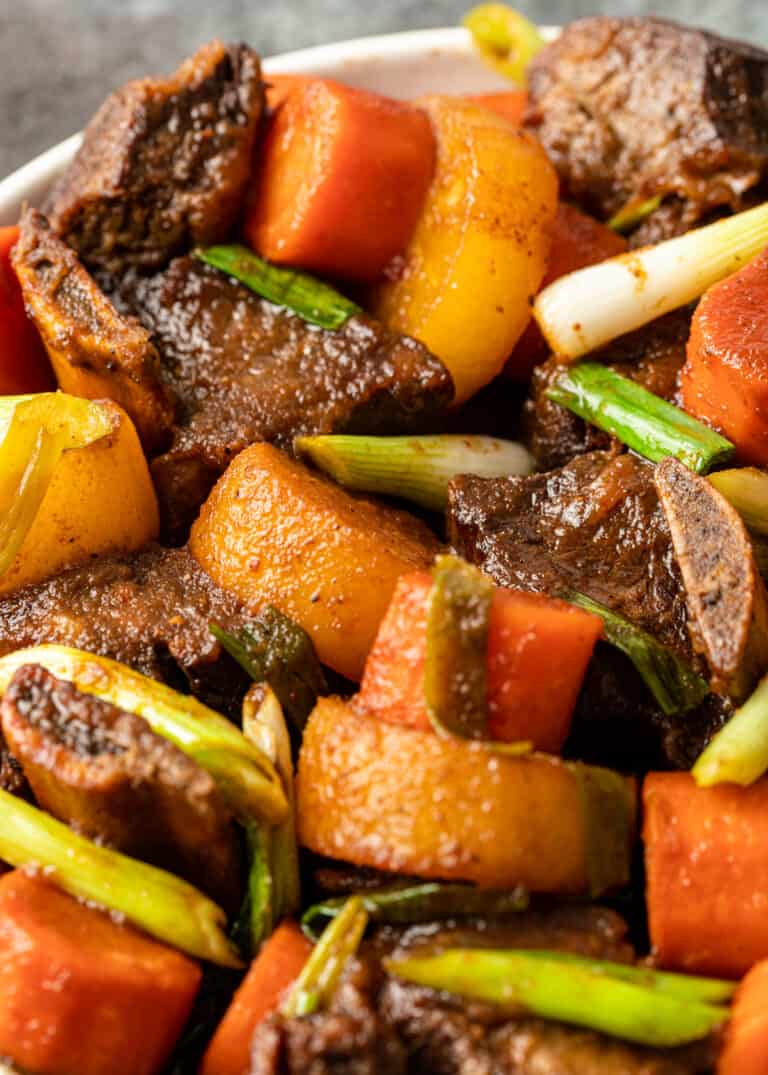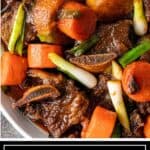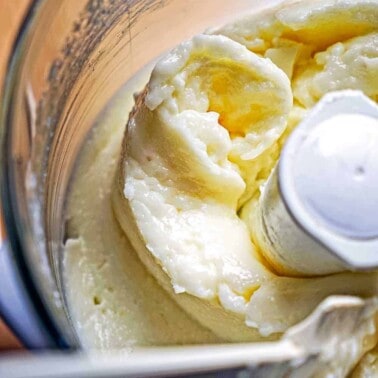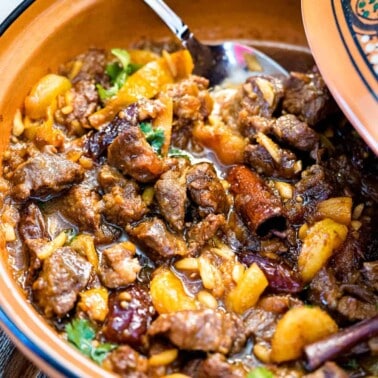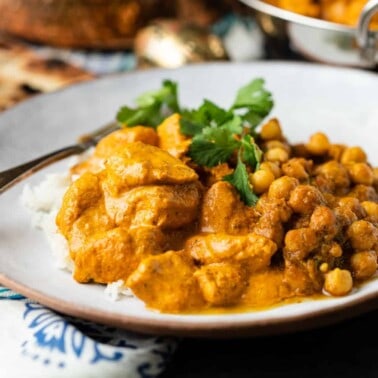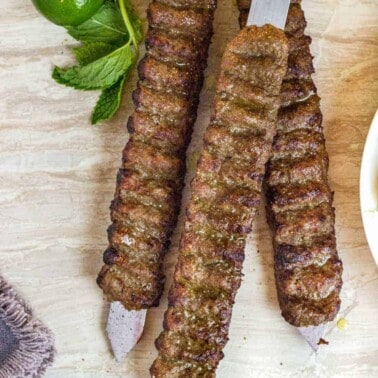Galbi Jjim Recipe (Korean Braised Short Ribs)
This galbi jjim recipe makes a Korean braised short ribs dish with sweet fruit flavors. Make Instant Pot galbi jjim for a hearty Asian meal.
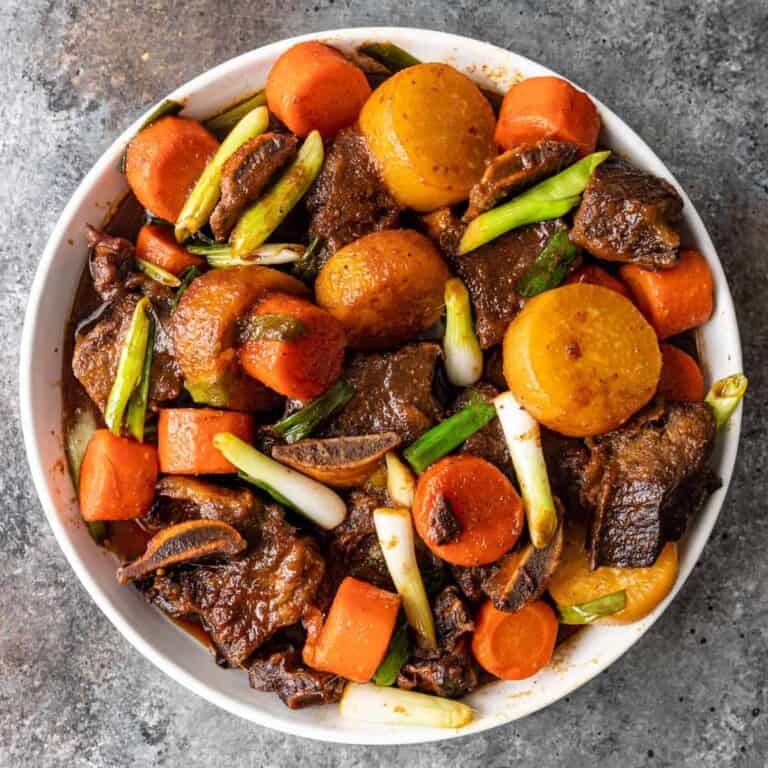
Whether beef or pork, ribs make for a delicious, comforting, and hearty meal. In the summer months, grilled ribs are my personal favorite, but as the weather turns colder, I turn to my pressure cooker and make braised ribs.
Galbi Jjim Recipe
Cuisine: Asian / Korean
Ribs dishes can be found in many of the cuisines throughout Asia. From Chinese sweet and sour ribs to Indian coconut curry ribs, and sticky ribs to Korean braised short ribs, there’s a flavor and cooking method to suit everyone’s preferences!

Alternate names/spellings: galbijjim, galbi, Korean braised short ribs, kalbi
Pronunciation: gal·bee jim
Course: Main dish
Preparation: braised (galbi) or grilled (kalbi)
Difficulty: Easy 🥄
Description:
Braised short ribs cooked in a sweet braising liquid made with Asian pears, Daikon radish, carrots, and green onions (scallions).
Kalbi vs Galbi
The primary difference between galbi jjim and kalbi is the cooking process. Both are rib dishes, but rather than braise the ribs, kalbi is almost always grilled.
Also, a kalbi recipe is sometimes made with pork ribs rather than beef short ribs.
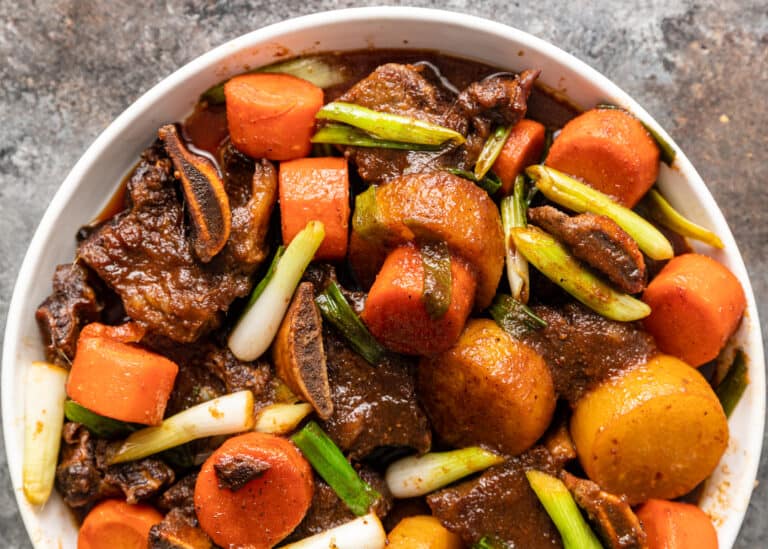
Ingredient notes and substitutions
- Beef short ribs– Look for or ask your market’s butcher for 1 ½” thick single beef short ribs. With single-cut ribs, the meat tends to slide more easily off of the bone.
- Asian Pear– This sweet, juicy fruit is native to Asia, but is now also grown in parts of California. It has firm flesh and sweetness like an apple, but has a pear flavor. Here in the U.S., Asian pears are harvested only two months out of the year, October and November.
Good substitutes for Asian pears include Bosc pears and sweet, firm-flesh apples like Fuji or Gala.
- Sake– Also known as rice wine, this “wine” is made from fermented rice, and it has quite a bit more alcohol by volume (ABV) than grape wines. On average, saki has an ABV of 18-20% compared to grape wines, which have an ABV of 9-16%.
If you need a substitute, either cooking sherry, mirin, or a dry white wine will do. For a non-alcoholic sake substitute, use rice wine vinegar, which despite the name, has no alcohol by volume.
- Daikon radish– There are plenty of substitutes for Daikon radish. White turnips are the best substitute for Daikon, but any of the following will work: jicama, red radish, parsnips, Korean radish, horseradish root, white carrot, or water chestnuts.
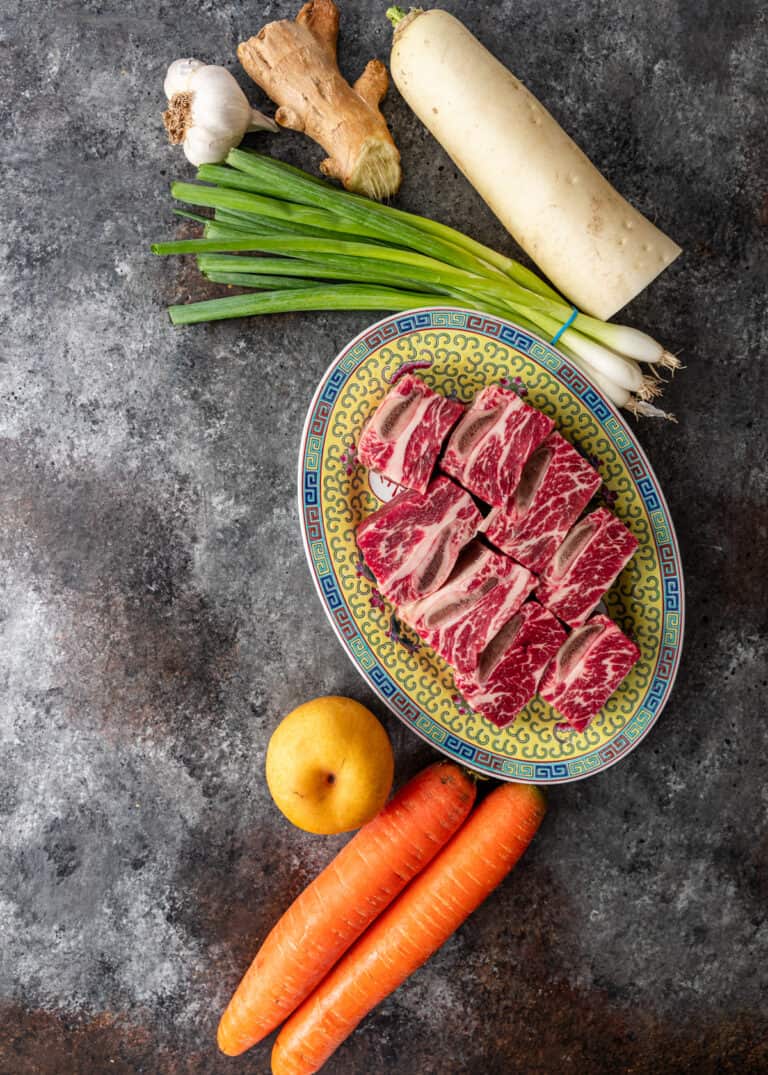
Video: Making Instant Pot Braised Short Ribs
This galbi jjim recipe is written for pressure cooking. Making it in a slow cooker or on a stovetop is possible, but it takes a lot longer, and I haven’t tested this recipe using any other method.
Besides, an Instant Pot (or other multicooker) is the quickest way to get the braised short ribs on the table!
To see the process from start to finish, watch the video located in the recipe card at the bottom of this post.
Galbi Jjim Recipe instructions
- Soak and parboil the ribs.
By soaking the ribs you are drawing out any excess blood and cleaning away any remaining bone chips or residue. The 5-minute boil is optional, but it helps rid the short ribs of any gamey taste that they can sometimes have.
- Make the braising liquid/sauce.
The simplest way to make the cooking liquid is with a high speed blender. If you don’t have one, a regular blender, immersion blender, or food processor can get the job done.
- Pressure cook the ribs.
Place the beef short ribs into the bottom of the pressure cooker and pour the braising liquid over them. When you make braised short ribs, keep in mind that the liquid will only cover the short ribs half way.
This is exactly what you want. If they were fully submerged in liquid, they would boil, leading to a gummy and chewy texture.
Serving suggestions
As with any braised beef dish, galbi jjim is delicious served with a side of rice or potatoes.
I recommend Baked Basmati rice pilaf roasted or mashed potatoes, or Lebanese rice pilaf.
Sauce: You can spoon the braising liquid over the meat, or strain the liquid then reduce it to thicken, or add a cornstarch slurry to make a gravy.
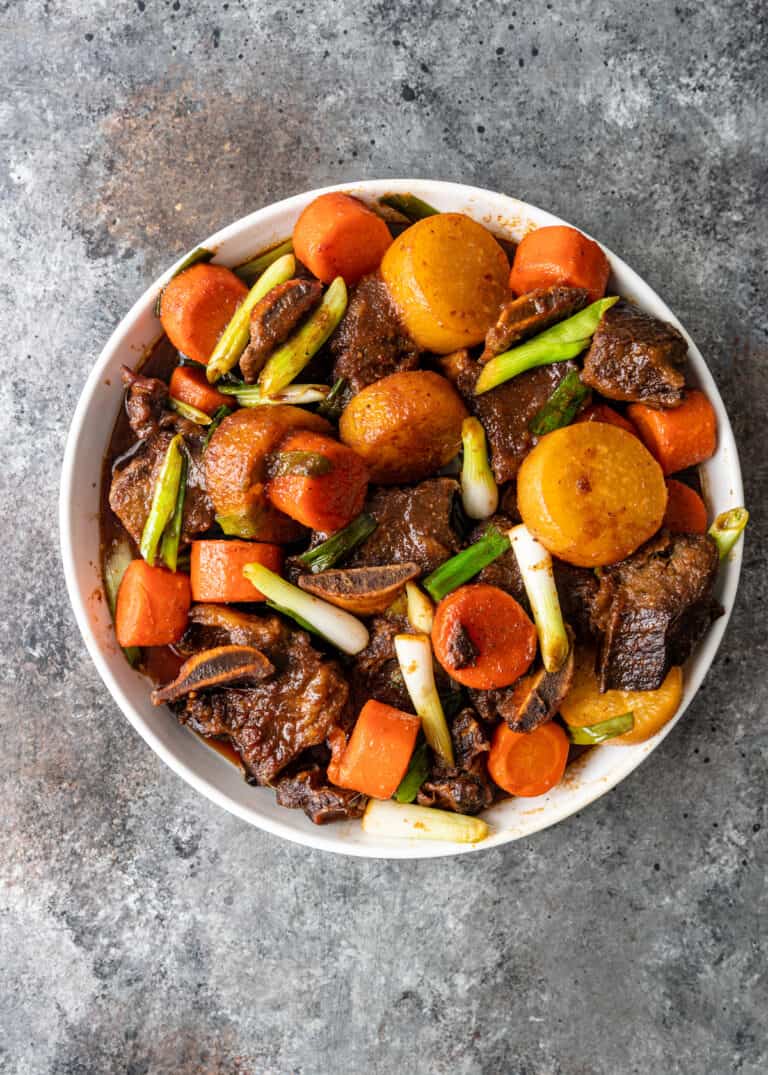
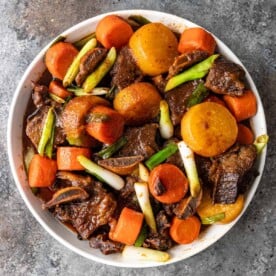
Galbi Jjim Recipe + Video
Ingredients
- 4 lbs beef short ribs See Note 1
- 1/2 white onion quartered
- 1/2 Asian pear or Fuji apple, quartered
- 10 garlic cloves
- 1 tbsp ginger paste or 1-inch piece fresh
- 1/3 cup light soy sauce
- 1/3 cup mirin or sake
- 1/3 cup apple juice
- 1/3 cup sugar
- 1 tsp red pepper flakes
- 1 tsp black pepper
- 2 carrots peeled and cut into 1-inch chunks
- 1/2 daikon radish 8-inches, peeled and cut into 1-inch chunks
- 8 green onions trimmed and cut into thirds
Instructions
- Soak ribs in cold water for 15 minutes (See Note 2). Rinse and add to a stock pot of boiling water. Return water to boil and flash boil 5 minutes. Drain and set ribs aside.
- In a blender add the onion, pear, garlic, ginger, soy sauce, mirin, apple juice, sugar, red pepper flakes and black pepper. Puree until smooth.
- Transfer short ribs to Instant Pot, pour sauce over, and if needed, add enough water to cover. Close lid and cook on Pressure Setting for 45 minutes on High. Allow for Natural Release.
- Remove lid. Using tongs, remove ribs, cover with foil and set aside. Transfer sliced carrot and radish to the pot, stir and press Saute setting for 15 minutes. In last 5 minutes add the green onions (stir to mix). Vegetables with be firm tender and sauce will thicken.
- Serve ribs with vegetables and sauce poured over. I like to also serve along side some steamed rice.
Video
Notes
- Look for or ask your market’s butcher for 1 1/2″ thick single beef short ribs.
- By soaking the ribs you are drawing out any excess blood and cleaning any bone residue and chips. The 5-minute boil (optional) helps rid the short ribs of any gamey taste they can sometimes have.
Nutrition
The information shown is an estimate provided by an online nutrition calculator. It should not be considered a substitute for a professional nutritionist’s advice.
